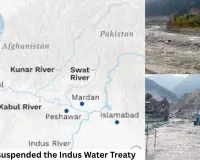Pakistan Defence Minister Accuses Kabul of Acting as India’s Proxy
Digital Desk

Pakistan’s Defence Minister Khawaja Asif has launched a sharp attack on Afghanistan’s leadership, accusing Kabul of serving as a “tool for Delhi” and warning that any Afghan aggression toward Islamabad would be met with a response “50 times stronger.”
Asif alleged that India is using Afghanistan to wage a low-intensity proxy war against Pakistan.
“The people in Kabul pulling the strings are being controlled by Delhi,” he said, as quoted by Dawn. “India wants a low-intensity war with Pakistan, and Kabul is helping them achieve that.”
Peace talks collapse in Istanbul
Asif’s remarks came after peace talks between Pakistan and Afghanistan in Turkey collapsed, with Islamabad accusing Kabul of repeated reversals.
“Each time we came close to an agreement, their negotiators would return to Kabul, and the deal would be withdrawn after interference,” Asif said, adding that while Afghan negotiators acted in good faith, Kabul’s decision-makers derailed progress under India’s influence.
The three-day Istanbul dialogue, mediated by Turkey and Qatar, ended Monday without a breakthrough. Mediators, however, described the continued engagement as a “positive sign.”
According to diplomatic sources, the deadlock centered on Pakistan’s demand for verifiable action against the Tehreek-i-Taliban Pakistan (TTP), which Islamabad claims operates freely from Afghan soil.
“We will gouge their eyes out,” warns Asif
Responding to threats from the Afghan side, Asif issued a stark warning:
“If Afghanistan even looks at Islamabad, we will gouge their eyes out. There should be no doubt that Kabul is responsible for terrorism in Pakistan.”
He further cautioned that failure of the peace process could push the two nations toward an all-out conflict.
Talks end without resolution
Officials confirmed that most points in the Istanbul discussions had been “mutually agreed” but the verification mechanism for anti-terror action remained unresolved.
Pakistan’s Information Minister Attaullah Tarar said the Afghan delegation “kept straying from the core issue” and engaged in “blame-shifting.” He described the dialogue as having “failed to deliver any practical solution.”
Earlier, both sides had agreed to a temporary ceasefire in Doha on October 19, following weeks of deadly border clashes that killed dozens of soldiers, civilians, and militants.
However, the second round of talks in Istanbul collapsed amid mutual accusations, with both sides blaming each other for the impasse.
Diplomatic observers warn that the failure of the Istanbul talks has reignited tensions between Afghanistan and Pakistan, raising fears of renewed cross-border violence and further instability in the region.




.jpg)






